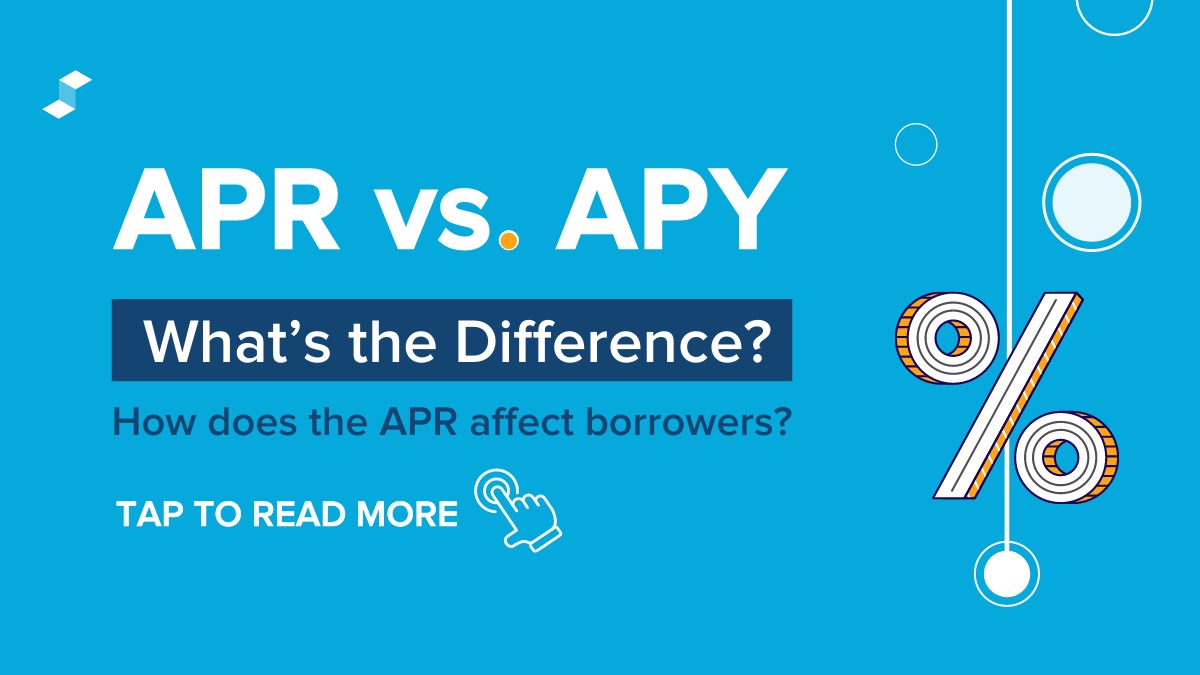Home>Finance>What Is The Difference Between Financial Investment And Economic Investment?


Finance
What Is The Difference Between Financial Investment And Economic Investment?
Published: October 16, 2023
Discover the dissimilarity between financial investment and economic investment. Learn the nuances of finance and how it impacts the economy.
(Many of the links in this article redirect to a specific reviewed product. Your purchase of these products through affiliate links helps to generate commission for LiveWell, at no extra cost. Learn more)
Table of Contents
- Introduction
- Definition of Financial Investment
- Definition of Economic Investment
- Key Differences Between Financial Investment and Economic Investment
- Importance and Implications of Financial Investment
- Importance and Implications of Economic Investment
- Examples of Financial Investment
- Examples of Economic Investment
- Factors to Consider When Making Financial Investments
- Factors to Consider When Making Economic Investments
- Conclusion
Introduction
When it comes to the world of finance and economics, two terms that often come up are financial investment and economic investment. While these terms may sound similar, they refer to distinct concepts with different implications. Understanding the differences between financial investment and economic investment is crucial for individuals and businesses looking to make informed decisions about their financial strategies.
In simple terms, financial investment refers to the purchase of financial assets with the expectation of generating a return or earning income. This typically involves investing in assets such as stocks, bonds, mutual funds, or real estate. The primary goal of financial investment is to generate a financial return on the invested capital.
Economic investment, on the other hand, refers to spending money on the creation, improvement, or maintenance of physical assets that are expected to contribute to the productive capacity of the economy. This includes investments in infrastructure, machinery, factories, technology, and research and development. The aim of economic investment is to foster economic growth, increase productivity, and enhance the overall well-being of a nation.
While financial investment is focused on generating profits and returns for investors, economic investment is more concerned with long-term growth and development. These two types of investments are interrelated and often have a significant impact on each other. For example, increased economic investment can lead to higher corporate profits, which in turn can drive up the value of financial investments.
Understanding the differences between financial investment and economic investment is important because they have different implications and require different considerations. Financial investment requires analyzing market trends, assessing risks, and diversifying portfolios to maximize returns. Economic investment, on the other hand, requires evaluating the potential impact on economic growth, considering infrastructure needs, and aligning with long-term economic goals.
In the following sections, we will delve deeper into the key differences between financial investment and economic investment, explore their importance and implications, provide examples to illustrate each concept, and discuss the factors to consider when making these types of investments.
Definition of Financial Investment
Financial investment refers to the act of allocating funds to various financial assets in order to generate a return or earn income. It involves purchasing assets such as stocks, bonds, mutual funds, real estate, or other financial products with the expectation of capital appreciation, dividends, interest, or rental income.
The primary objective of financial investment is to maximize returns while managing risks. Investors carefully analyze market trends, economic indicators, and company performance to make informed decisions about buying, selling, or holding onto financial assets.
There are various types of financial investments, each with its own risk and return characteristics. For example, investing in the stock market provides an opportunity for capital growth but also comes with a higher level of risk compared to investing in bonds, which typically offer a more stable income stream. Real estate investments can provide both rental income and potential appreciation in property value.
Financial investments can be made directly by individual investors or through intermediaries such as mutual funds, exchange-traded funds (ETFs), or brokerage accounts. These intermediaries pool together the investments of multiple individuals and manage the portfolio on their behalf.
One of the key aspects of financial investment is diversification. By spreading investments across different asset classes and sectors, investors aim to reduce risk by minimizing the potential impact of any single investment performing poorly.
Financial investment also involves monitoring and managing the portfolio over time. This may include rebalancing the asset allocation to maintain a desired risk-return profile, keeping up with market trends and economic developments, and making adjustments based on changing financial goals and circumstances.
Overall, financial investment is a crucial component of wealth creation and financial planning. It allows individuals and organizations to put their money to work, generate income, and build long-term financial security.
Definition of Economic Investment
Economic investment refers to the expenditure of funds for the purpose of creating, improving, or maintaining physical assets that contribute to the productive capacity of an economy. It involves investing in infrastructure, machinery, factories, technology, research and development, and other forms of capital that enhance the efficiency and productivity of businesses and industries.
The primary objective of economic investment is to stimulate economic growth, increase productivity, and generate long-term benefits for a nation. It focuses on creating the necessary conditions for businesses to thrive, innovate, and create jobs, which ultimately drives the overall economic well-being of a country.
Economic investment plays a crucial role in driving various sectors of the economy. Infrastructure investments, such as building roads, bridges, ports, and utilities, provide the foundation for economic activity by facilitating transportation, trade, and communication. Investments in manufacturing machinery and technology help businesses improve their production processes and efficiency.
Research and development investments are vital for innovation, as they fund scientific and technological advancements that can lead to new products, processes, and services. This type of investment fosters economic competitiveness and creates opportunities for businesses to gain a competitive advantage in the global marketplace.
Economic investment is often undertaken by both the public and private sectors. Governments allocate funds for public infrastructure projects, such as transportation networks, schools, and healthcare facilities, to support economic development and improve the quality of life for citizens.
Private businesses invest in economic assets to expand their operations, increase production capacity, and stay ahead of competitors. These investments can take the form of acquiring new equipment, upgrading technology systems, or investing in research and development initiatives.
Economic investment is a long-term commitment that considers the potential return on investment in terms of economic growth, job creation, and the overall development of a nation. It requires careful evaluation of the economic climate, market demand, and strategic priorities to ensure that resources are allocated efficiently and effectively.
In summary, economic investment is focused on the creation and improvement of physical assets that drive economic growth and productivity. It is a critical component of national development and plays a significant role in shaping the future success of industries and economies as a whole.
Key Differences Between Financial Investment and Economic Investment
Although financial investment and economic investment may seem similar, they differ in several key aspects. Understanding these differences is essential for individuals and businesses looking to make informed decisions about their investment strategies. Here are the key distinctions between financial investment and economic investment:
- Objective: The primary objective of financial investment is to generate a financial return or earn income. Investors aim to maximize returns by investing in various financial assets, such as stocks, bonds, and real estate. On the other hand, economic investment focuses on stimulating economic growth and productivity. It involves spending on infrastructure, technology, and research and development to enhance the overall well-being of a nation.
- Time Horizon: Financial investments are often made with short- to medium-term goals in mind. Investors seek returns within a specific timeframe, and their investment decisions are influenced by market trends and economic conditions. Economic investments, on the other hand, have a longer time horizon. They are driven by the objective of fostering sustainable economic growth and may take years or even decades to yield significant results.
- Risk and Return: Financial investments are associated with varying levels of risk and return. The risk-return profile depends on the specific asset class, market conditions, and individual investment strategies. Economic investments, on the other hand, are primarily focused on generating long-term economic benefits and may involve risks associated with economic uncertainties and policy changes.
- Focus: Financial investment is primarily concerned with individual or corporate wealth creation. Investors aim to maximize financial gains by strategically allocating their funds in different asset classes. Economic investment, on the other hand, is more focused on the overall economic development of a nation. It aims to improve infrastructure, encourage innovation, and enhance the productive capacity of industries.
- Stakeholders: Financial investment involves various stakeholders such as individual investors, financial institutions, and asset managers. Economic investment, on the other hand, involves a broader range of stakeholders, including governments, businesses, and citizens. The impacts of economic investments are felt at both the macroeconomic and microeconomic levels.
In summary, while financial investment focuses on generating financial returns and income in the short to medium term, economic investment is aimed at promoting long-term economic growth and development. Both forms of investment play crucial roles in the economy, but their objectives, time horizons, risk profiles, and stakeholders differ significantly.
Importance and Implications of Financial Investment
Financial investment is of utmost importance for individuals, businesses, and economies at large. Its significance lies in the following aspects:
- Wealth Creation: Financial investment offers the opportunity to grow and accumulate wealth over time. By investing in assets such as stocks, bonds, and real estate, individuals can potentially generate returns and increase their net worth. It allows for the creation of a diversified portfolio, enabling investors to spread their risk and capitalize on various market opportunities.
- Income Generation: Financial investments can provide a steady stream of income through dividend payments, interest earned, or rental income. This income can be used to cover living expenses, reinvest in additional assets, or save for future financial goals.
- Retirement Planning: Financial investment plays a crucial role in retirement planning. By investing in retirement accounts and pension funds, individuals can accumulate a nest egg to ensure financial security during their retirement years. These investments allow for long-term growth and potential compounding of returns.
- Corporate Growth: Financial investment is essential for businesses to expand their operations, invest in research and development, and seize new opportunities. It provides the necessary capital for companies to innovate, develop new products, and enter new markets. This can lead to increased profitability, market share, and competitiveness.
- Capital Formation: Financial investments contribute to the overall capital formation in an economy. This capital is used by businesses to finance their operations, invest in physical assets, and create jobs. It stimulates economic activity, fosters entrepreneurship, and drives economic growth.
- Liquidity and Market Efficiency: Financial markets rely on investment activity to ensure liquidity and efficient price discovery. Investors buying and selling financial assets facilitate the flow of capital and enable the efficient allocation of resources. This contributes to the stability and functioning of financial markets.
However, it is important to recognize that financial investment also carries certain implications and considerations. These include market volatility, potential risks such as market downturns or economic recessions, and the need for ongoing monitoring and management of investment portfolios. It is vital for investors to educate themselves, seek professional advice, and align their investment strategies with their financial goals and risk tolerance.
In summary, financial investment plays a crucial role in wealth creation, income generation, retirement planning, corporate growth, capital formation, and market efficiency. It provides individuals and businesses with opportunities to grow their assets, generate income, and contribute to economic development. However, it is important to approach financial investment with careful consideration and a long-term perspective to navigate the inherent risks and maximize potential returns.
Importance and Implications of Economic Investment
Economic investment holds significant importance for individuals, businesses, and nations due to its wide-ranging implications and benefits. Understanding its importance is crucial, and here are the key reasons why economic investment is essential:
- Economic Growth: Economic investment plays a fundamental role in driving economic growth. By investing in infrastructure, technology, research and development, and other capital assets, nations can create an environment conducive to business expansion, job creation, and increased productivity. This, in turn, leads to higher national income levels, improved living standards, and enhanced economic well-being.
- Job Creation: Economic investment stimulates job creation by fostering business growth and expansion. Investments in industries such as manufacturing, infrastructure, and technology generate employment opportunities across various sectors of the economy. This not only reduces unemployment but also improves overall workforce participation and boosts consumer spending, further contributing to economic growth.
- Productivity Enhancement: Economic investments, particularly in technologies and research and development, drive innovation and productivity improvements. By adopting advanced machinery, upgrading production processes, and investing in research and development, businesses can enhance their efficiency and competitiveness. This leads to higher quality products, cost savings, and increased output per worker, ultimately driving the overall productivity of the economy.
- International Competitiveness: Economic investment is crucial for nations to maintain and improve their international competitiveness. By investing in infrastructure, transportation networks, and technological advancements, countries can attract foreign direct investment, stimulate trade, and position themselves as favorable business destinations. This contributes to increased exports, improved trade balances, and strengthens the country’s position in the global marketplace.
- Sustainable Development: Economic investments can contribute to sustainable development by promoting environmentally friendly practices and technologies. Investing in renewable energy, clean technologies, and sustainable infrastructure reduces carbon emissions, promotes resource efficiency, and mitigates the impacts of climate change. This not only benefits the environment but also creates new business opportunities in the emerging green economy.
- Regional Development: Economic investments can contribute to balanced regional development by directing resources towards areas that are economically disadvantaged or lagging behind. By investing in infrastructure, public services, and education in these regions, governments can reduce regional disparities, promote inclusive growth, and improve the overall economic well-being of the entire nation.
However, economic investment also entails certain challenges and considerations. Governments need to carefully plan and allocate resources, evaluate potential risks, and ensure proper governance and accountability in the investment process. Additionally, economic investments must align with long-term economic goals, sustainability objectives, and social considerations to maximize their impact.
In summary, economic investment plays a crucial role in driving economic growth, creating jobs, enhancing productivity, improving international competitiveness, promoting sustainable development, and facilitating regional development. It is a catalyst for positive change and has far-reaching implications for individuals, businesses, and societies. By making strategic and well-planned economic investments, nations can foster inclusive and sustainable development for the benefit of present and future generations.
Examples of Financial Investment
Financial investments encompass a wide range of asset classes, each offering unique characteristics and potential returns. Here are some examples of financial investments:
- Stocks: Investing in stocks involves purchasing shares of ownership in publicly traded companies. Investors can potentially earn returns through capital appreciation as the stock price rises, as well as through dividends paid by the company.
- Bonds: Bonds are debt instruments issued by governments, municipalities, or corporations to raise capital. By investing in bonds, individuals lend money to the issuer in exchange for regular interest payments and the return of the principal amount at maturity.
- Mutual Funds: Mutual funds pool money from multiple investors to invest in a diversified portfolio of assets, such as stocks, bonds, or a combination of both. Investors in mutual funds benefit from professional management and the ability to access a diversified portfolio with relatively small investments.
- Exchange-Traded Funds (ETFs): Similar to mutual funds, ETFs invest in a broad range of assets. However, ETFs trade on stock exchanges like individual stocks, offering investors the flexibility to buy and sell shares throughout the trading day.
- Real Estate Investment Trusts (REITs): REITs are investment vehicles that own and operate income-generating real estate properties. By investing in REITs, individuals can gain exposure to the real estate market without the need to directly own and manage properties.
- Commodities: Investing in commodities involves trading or holding physical goods such as gold, silver, oil, or agricultural products. Commodities are often seen as a hedge against inflation and can provide diversification in an investment portfolio.
- Options and Futures: Options and futures are derivative financial instruments that derive their value from an underlying asset. They offer investors the opportunity to speculate on the price movements of stocks, commodities, or other assets, with the potential for significant returns.
- Cryptocurrencies: Cryptocurrencies like Bitcoin and Ethereum have gained popularity as an alternative investment class. Investors can buy, hold, and trade cryptocurrencies with the hope of capitalizing on price fluctuations.
These examples represent just a few of the many financial investment opportunities available in the market. It is important for individuals to conduct proper research, assess their risk tolerance, and diversify their portfolios to meet their financial goals.
Examples of Economic Investment
Economic investment encompasses a wide range of expenditures aimed at enhancing the productive capacity and promoting the long-term growth of an economy. Here are some examples of economic investment:
- Infrastructure Development: Investing in infrastructure projects such as roads, bridges, airports, railways, and ports is a crucial form of economic investment. These projects improve transportation efficiency, facilitate trade, and support economic growth by reducing logistics costs and enhancing connectivity.
- Research and Development (R&D): Investing in R&D activities is essential for innovation and technological advancements. Governments, businesses, and academic institutions dedicate resources to research initiatives to develop new products, services, and technologies, which can drive economic growth and enhance competitiveness.
- Education and Skills Development: Investment in education and skills development is critical for producing a highly skilled workforce. Governments allocate funds to improve educational institutions and training programs, which leads to a more productive labor force and promotes economic development.
- Technological Upgrades: Businesses invest in technological upgrades to enhance their operations and increase efficiency. These investments may include adopting advanced machinery, implementing automated systems, or integrating digital technologies into production processes. Technological upgrades improve productivity, reduce costs, and drive economic competitiveness.
- Green Energy and Sustainable Projects: Economic investment in renewable energy sources such as solar, wind, and hydro power promotes sustainability and reduces reliance on fossil fuels. Investing in energy-efficient projects and technologies contributes to environmental protection and long-term economic viability.
- Entrepreneurship and Small Business Support: Economic investment in entrepreneurship and small business support programs fosters innovation, job creation, and economic diversification. Governments and organizations provide financial incentives, training, and mentoring to promote the growth of small businesses and startups.
- Healthcare and Public Health Initiatives: Investments in healthcare infrastructure, medical research, and public health initiatives contribute to improved healthcare access, disease prevention, and overall well-being. These investments lead to a healthier workforce and increased productivity.
- Industrial and Manufacturing Expansion: Economic investment in expanding industrial and manufacturing sectors stimulates economic activity and job creation. Investments may include constructing new factories, upgrading existing facilities, or adopting advanced manufacturing technologies.
These examples demonstrate the diverse forms that economic investment can take, all aimed at creating a conducive environment for economic growth, increased productivity, innovation, and the overall development of a nation. Governments, businesses, and society as a whole benefit from these investments, which contribute to job creation, improved living standards, and sustainable economic progress.
Factors to Consider When Making Financial Investments
When making financial investments, it is important to consider various factors to make informed decisions and manage risk effectively. Here are some key factors to consider:
- Financial Goals: Clearly define your financial goals and objectives. Are you investing for short-term gains, long-term growth, or income generation? Understanding your goals will help determine your investment strategy and time horizon.
- Risk Tolerance: Assess your risk tolerance, which refers to your willingness and ability to take on risk. Investments come with a certain level of risk, and it’s important to align your risk tolerance with the potential risks associated with different asset classes.
- Asset Allocation: Diversify your investment portfolio by allocating assets across different asset classes, such as stocks, bonds, and real estate. Asset allocation is key to managing risk and spreading it across different investment categories.
- Investment Horizon: Consider your investment time horizon. Short-term investments may involve higher risk and volatility, whereas long-term investments may offer more potential for growth. Align your investment choices with your time horizon and financial goals.
- Market Research and Analysis: Conduct thorough research and analysis of the market and the specific investment opportunities you are considering. Study factors such as historical performance, market trends, economic indicators, and company financials to make informed investment decisions.
- Costs and Fees: Consider the costs associated with an investment, such as transaction fees, management fees, and expense ratios. Lower costs can have a significant impact on investment returns over time.
- Professional Advice: Seek advice from professionals, such as financial advisors or investment managers, who can provide guidance based on your financial situation, risk profile, and investment goals. They can help tailor an investment strategy to meet your specific needs.
- Regulatory and Legal Considerations: Be aware of the regulatory and legal considerations associated with different investments. Understand the rules and regulations governing the asset class you are investing in, as well as any tax implications or reporting requirements.
- Monitoring and Portfolio Management: Regularly monitor your investments and make adjustments as needed. Stay updated on market conditions, economic events, and company news that may impact your investments. Rebalance your portfolio periodically to maintain your desired asset allocation.
It is important to note that investing involves risk, and no investment is guaranteed to generate positive returns. Understanding and considering these factors can help you make more informed investment decisions, mitigate risk, and maintain a balanced and diversified portfolio.
Factors to Consider When Making Economic Investments
When considering economic investments, it is important to evaluate various factors that can influence the success and impact of your investment decisions. Here are some key factors to consider:
- Economic Conditions: Assess the broader economic conditions, such as GDP growth, inflation rates, and employment levels. Understanding the current state and future outlook of the economy helps in identifying investment opportunities and potential risks.
- Market Demand: Evaluate market demand, consumer preferences, and emerging trends. Invest in sectors and industries that have strong market potential and align with changing consumer demands. This helps ensure that your investment will be valuable and sustainable in the long run.
- Policy and Regulatory Environment: Consider the policy and regulatory environment in which your investment will operate. Changes in regulations, government policies, and taxation can significantly impact the feasibility and profitability of your investment.
- Social and Environmental Impact: Take into account the social and environmental impact of your investment. Assess how the investment aligns with sustainability goals, ethical practices, and societal needs. Investing in projects that have a positive social and environmental impact can contribute to long-term success and public support.
- Location and Infrastructure: Evaluate the geographical location of your investment. Assess the availability of transportation networks, utilities, and other infrastructure that are necessary for the success of your investment. Consider the potential for growth and development in the chosen location.
- Cost-Benefit Analysis: Conduct a thorough cost-benefit analysis to assess the potential returns and risks associated with the investment. Consider factors such as capital expenditure, operational costs, revenue projections, and the expected time frame for a return on investment.
- Partnerships and Collaboration: Explore opportunities for partnerships and collaboration with other businesses, governments, or research institutions. Collaborative investments can provide access to resources, expertise, and market connections that enhance the success and impact of the investment.
- Evaluate Future Trends: Anticipate future trends and advancements that may impact the success of your investment. Consider technological advancements, market disruptions, and changing consumer behaviors. Position your investment to adapt and capitalize on these emerging trends.
- Long-Term Outlook: Economic investments are often long-term commitments. Consider the long-term implications and sustainability of your investment. Assess whether the investment aligns with your overall economic development goals and supports sustainable growth over time.
By carefully considering these factors, investors can make informed decisions and increase the likelihood of successful economic investments. Aligning the investment with economic objectives, evaluating the market demand, and understanding the regulatory environment are crucial in maximizing the economic impact and achieving sustainable development.
Conclusion
Financial investment and economic investment are two distinct concepts with different objectives and implications. Financial investment focuses on generating financial returns and income through the purchase of financial assets such as stocks, bonds, and real estate. On the other hand, economic investment aims to stimulate economic growth and development by investing in infrastructure, technology, research and development, and other capital assets.
Both types of investments play crucial roles in individual wealth creation, business expansion, job creation, and overall economic progress. Financial investment offers individuals the opportunity to accumulate wealth, generate income, and plan for their financial future. Economic investment, on the other hand, drives economic growth, productivity enhancement, and the creation of a favorable business environment.
When making financial investments, individuals must consider factors such as financial goals, risk tolerance, asset allocation, and market research. These factors help individuals make appropriate investment decisions based on their unique circumstances and objectives.
Similarly, economic investments require careful consideration of economic conditions, market demand, policy and regulatory environment, social and environmental impact, and long-term viability. By analyzing these factors, investors can make informed decisions that align with their economic development goals and contribute to long-term sustainable growth.
In conclusion, both financial investment and economic investment are essential components of wealth creation, economic growth, and overall development. By understanding the differences between the two and considering the relevant factors, individuals, businesses, and governments can make strategic investment choices that drive economic prosperity and build a stronger financial future.














